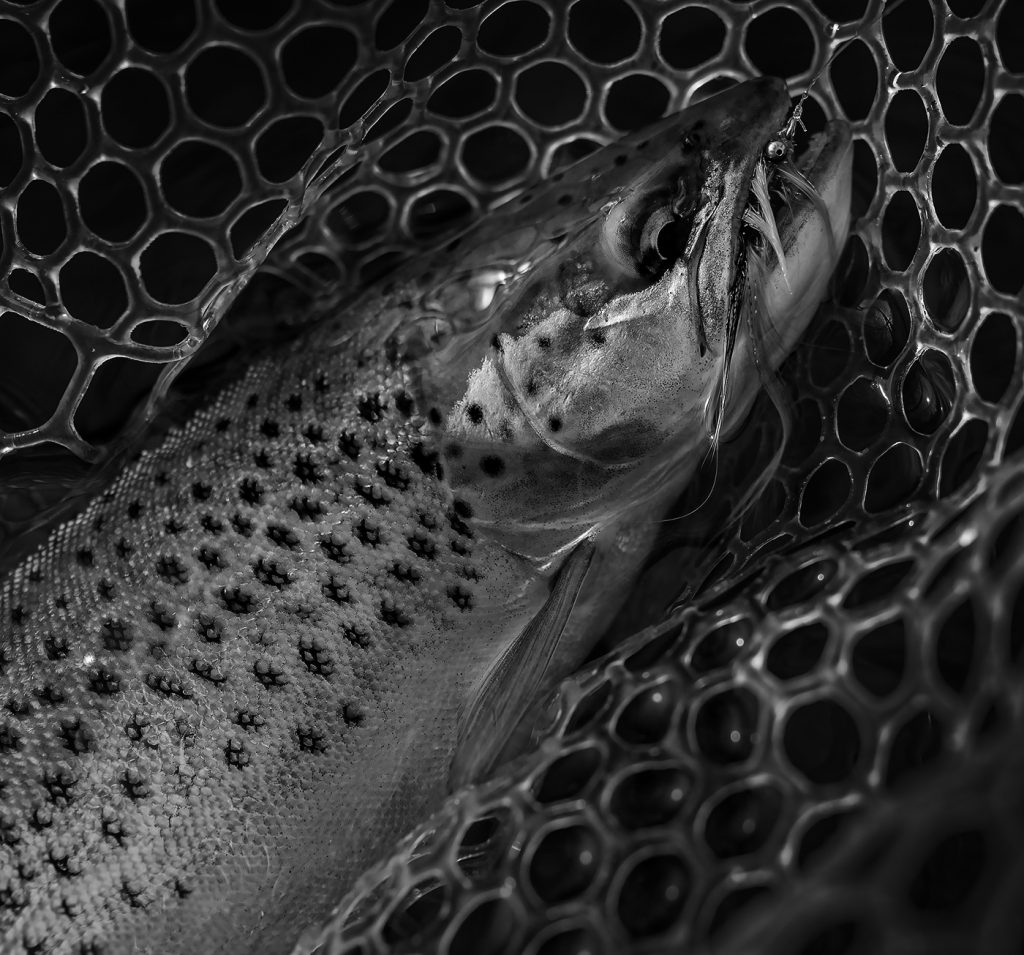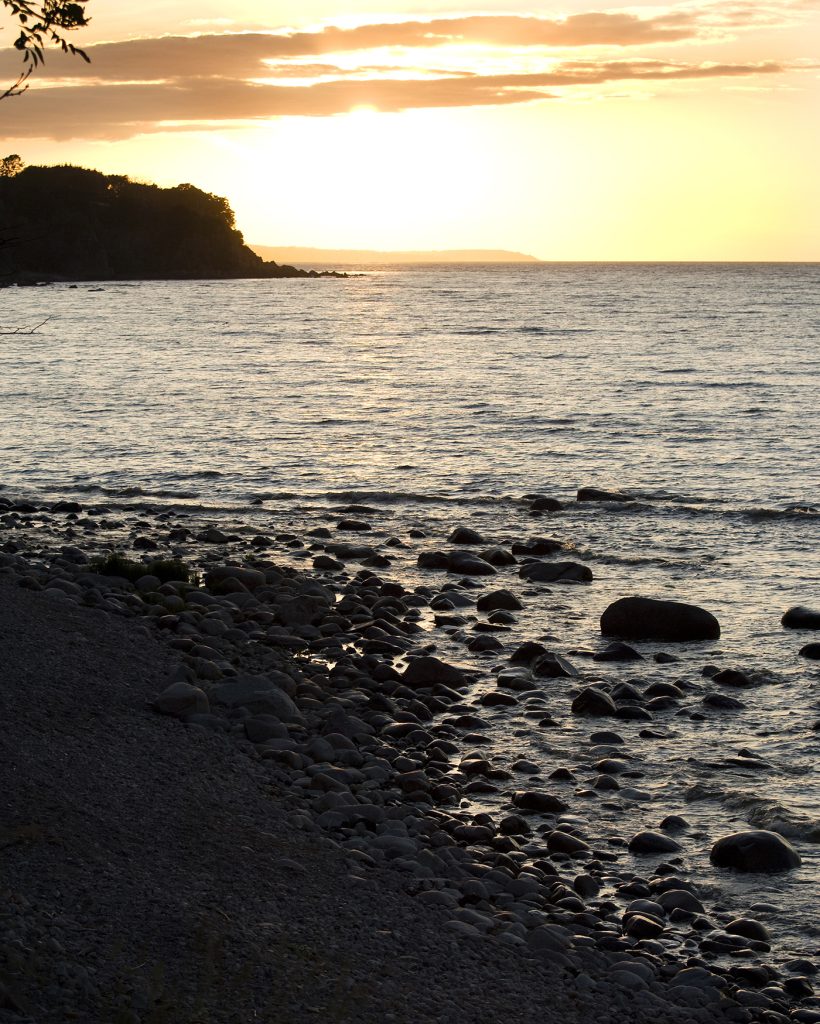
The question is not how to fish, but why you do it. The author and his fishing buddies do it out of necessity. It’s more important than life and death to them to escape the human world, step in to water and wave a stick. Left on the shore is their misery and worries. Standing in the water they find freedom, healing and occasionally a fish.
Battles are lost and won with tongue in cheek and always celebrated with mountains of cake and an endless stream of fresh espresso coffee. To the band of brothers it’s more important who you fish with than how big the fish is; except for the ones lost.
You may not learn a lot about catching more and bigger fish, but reading these stories is like holding a mirror up in front of yourself getting a little wiser. The small why is a big one.
- This artickel is written by Danish photojournalist Søren Skarby
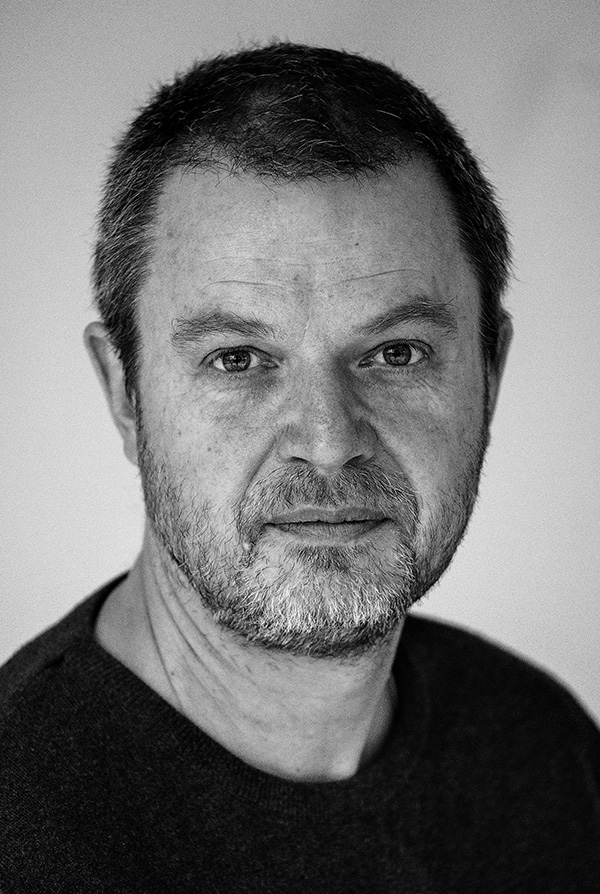
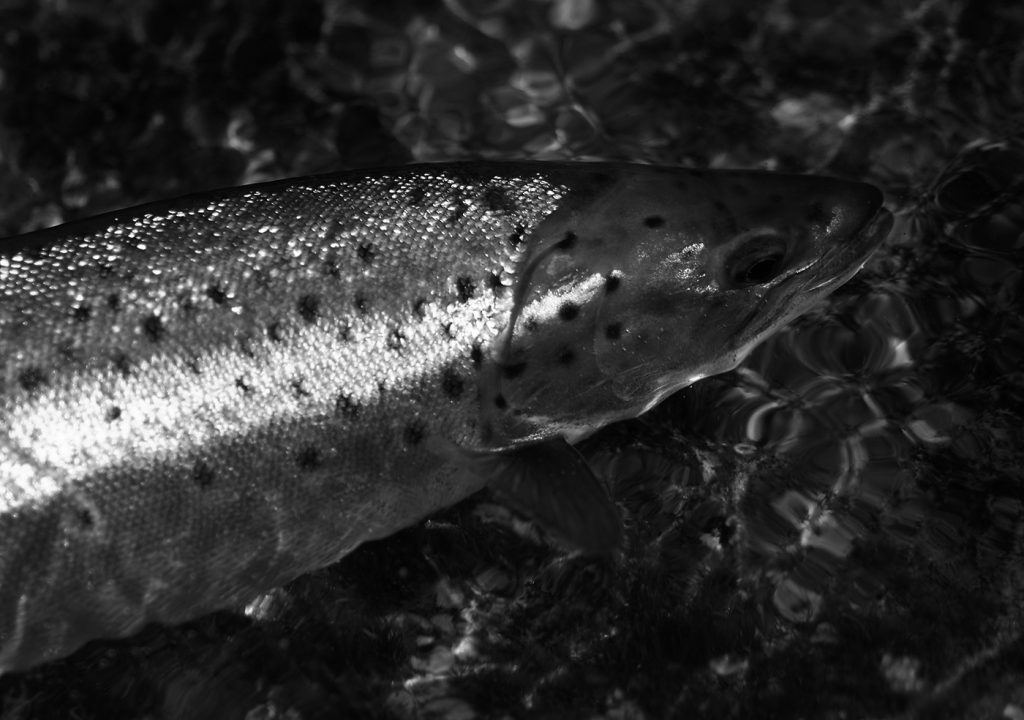
Spring lasted two weeks that year then it was over. A few days into May the sun started shining and the rain stopped falling. Normally the transition is slow and we gradually start fishing later and later in the day, but the sea trout became nocturnal overnight. The change was welcome; we lay in the evening sun on the beach with our heads resting on the backpacks waiting for the dark to come. Rods were standing rigged and ready as the first cup of fresh coffee were downed. Codfish disappeared fast as the sea got warmer, but the sea trout was still there. An unusual invasion of coalfish made it all a bit more fun. The small, but fierce fighters, was a pleasant variation. Then the weather changed from warm to hot and soon to really hot. The weather report was the same day after day with a slight change in temperature it raised steadily.
The heat scorched the kelp that started dying and made fishing impossible because of drifting weed; we started being on the lookout for mackerel. The boat of the Humpback Whale needed a repair and the band of brothers all helped getting it in perfect shape for roaming the waters hunting for the pillaging pirates. When they arrived it wasn’t in the same enormous schools as the year before. We caught some here and there, but never hit the big jackpot. The reason were simple and sad, the sea was dyeing. An evil combination of high water temperatures and loads of fertilisers from farming made an explosion of algae and bacteria. In the bays with no movement in the water the bottom got covered with a colourful and deadly blanket of bacteria supplanting oxygen. Everything that couldn’t swim died and the fish fled. The deep water still moved by the tidal current looked like a giant bowl of glass noodle soup with nearly no visibility.
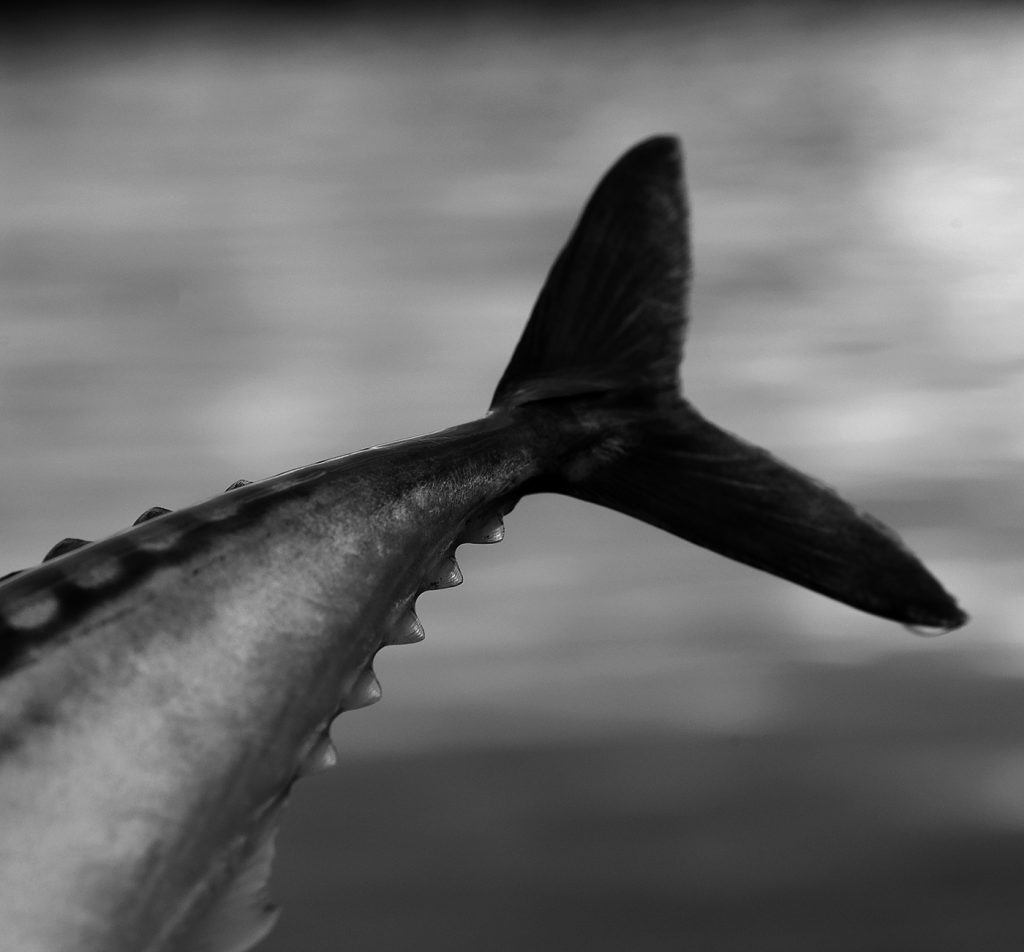
Several trips with close to no luck fishing for the striped mini tuna gave us loads of time to talk and observe the surroundings. The mackerel highway is close to the shore and you can see how the coastline makes the tidal current bounce and bend. At one of those places where the current runs strong and deep there is a small tip of land just about fifty yards long pretty close to deep water. I was watching it every time we passed by and asked The Bricklayer what it was like to fish there. “Properly fine”, he said, “but there are private gardens all along the shore there. You have to run something like a very long Grand National Steeplechase in waders crossing small piers to get to the tip.” I nodded and sighed, but the thought of the tip kept haunting me.
There had to be an easier way to get down to the tip. I jumped in the car to have a look at it. The tip is situated by a small town with houses several hundred years old many of them were build by sailors that spend the most of their lives away from home. I stopped close to the tip in a street with some of the oldest houses and had a look around. An old man had just parked his car and walked up to me. “Can I help you?” he asked and stuck his hand in mine. I told him about me and my fellow fishermen and our eternal hunt for sea trout and asked how we could get easy access to the tip. “Well, you can walk through our garden”, he said and watched me beam from ear to ear. Then he told a story of him and his wife catching a fifteen-pound sea trout in a net just a hundred yards of the coast. That was the last bait I needed and told him that some of my friends and I properly would show up as soon as the water temperature had dropped a bit. On my way home I called The Bricklayer and told him that the way to the tip was cleared. Then we both started studying the weather forecasts even more methodically than we already did rain and wind had to be around the corner.
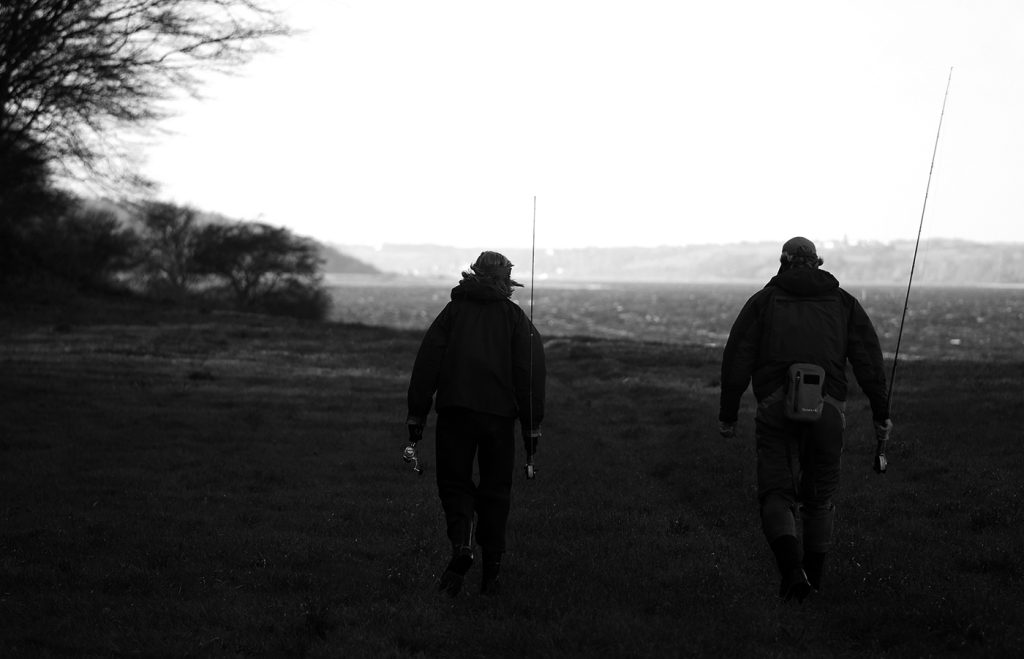
It lasted some weeks before the change in weather came. Some heavy showers made the air temperature drop; the big body of seawater were a lot slower. At last we couldn’t wait anymore and took off to discover the tip. “I better tell them we are here”, I said to the Bricklayer and knocked on the door. The woman of the couple opened it and looked smiling at me. “Just walk on, break a leg”, she said. Wondering how she knew we were going fishing I looked down myself and realized giggling that I already had my waders on. The tip was just a hundred yards walk, we dropped the gear and the Bricklayer asked me to brew coffee. “We need some time to let it all in”, he said and started rigging his rod. With mugs in hand we watched the water in front of us; a strong westbound current cleaved it in two. Right at the end of the tip the current went outwards and made a sharp line, at the other side the water stood still. The Bricklayer stuck a finger in direction of the line and I just nodded without words. We both knew that any decent trout with its full senses intact would be right there.
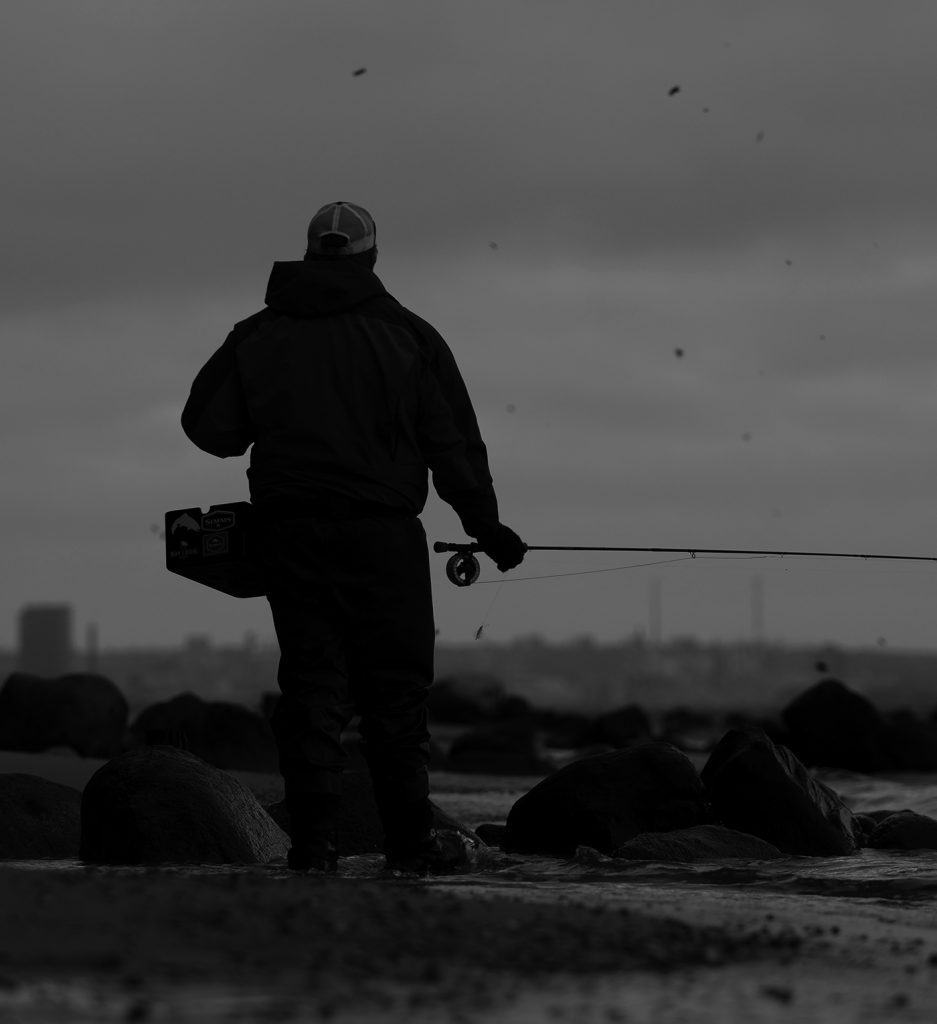
Wading out it got really interesting. The bottom was gravel with a few small stones in between the weed that was lying down because of the heavy current, the perfect hunting ground for trout. The Bricklayer was as usual bait casting and soon I heard him mumbling about takes and for sure there was fish. I had tied a mean little gammarus fly made on a double hook size ten on the tippet and started casting. The silvery little gems loved the fly and soon I had one of them in hand admiring the perfect body and releasing it again with a small splash. Next to me the Bricklayer experienced exactly the same having one take after the other and some fish in hand. All of them were under the legal limit, but in mint condition. After some time the Bricklayer mentioned that coffee could be a pretty good thing and got the boiler to work. “This place is special”, said the Bricklayer and took a sip, “We’ve got to keep it a secret only bringing a few friends.” I had to agree, if you tell about a good fishing spot you can be sure that it’s pretty crowded the day after. Add that the tip is a small place with room for at most four fishermen at the same time. We promised each other that the tip was only ours.
The current were still strong when we waded out again. A for once perfect cast made my fly land exactly at the line were the current went outbound. The take came as a hammer and I knew for sure that this was not one of the small juvenile desperados. The male trout went for the bottom using the current as extra force but after a while I could stick my net out and land it. “Keep it”, said the Bricklayer and nodded in direction of the elderly couples house. The trout was put to eternal sleep with a punch in the head and I waded to dry land and left the rod in our small camp. With the fish dangling from two fingers I knocked on the door and the couple came out together with their grand daughter. Telling them that we were so pleased with their hospitality I handed over the fish and was again told the story about the fifteen-pound trout; I could only smile. The Bricklayer had been catching and releasing more silver bars while I was away. I joined the party until we both thought it was enough. “Next spring and the summer nights”, the Bricklayer had a dreamy look in his eyes. “Next spring and the summer nights”, I said sounding like an echo. As we passed the house of the couple the woman came out beaming. “It’s so big that we have to invite guests.” The passage to the secret tip was secured.
